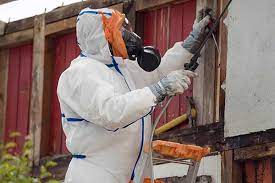Before beginning any construction, renovation, or demolition project, it is essential to identify potential hazards within the building structure. One of the most serious risks, especially in older properties, is the presence of asbestos testing. Found in many construction materials used before the year 2000, asbestos can be dangerous when disturbed. Scheduling asbestos testing before construction work is a critical step to ensure safety, compliance, and efficient project planning.
Why Asbestos Testing Is Necessary
Asbestos was widely used for its fire resistance, durability, and insulating properties. It can be found in numerous building components, such as ceiling tiles, pipe insulation, cement sheets, floor tiles, roofing materials, and textured coatings. While these materials may not pose a threat when intact, construction work can disturb them, releasing hazardous fibers into the air.
When inhaled, asbestos fibers can cause serious respiratory diseases, including mesothelioma, asbestosis, and lung cancer. These conditions often develop years after exposure and are usually irreversible. Proper testing before construction ensures that asbestos-containing materials (ACMs) are identified and managed safely.
Testing as a Legal Requirement
In many countries, asbestos testing is not just a recommendation—it is a legal requirement before construction begins. Property owners, employers, and contractors have a duty to assess and control asbestos risks. Construction on buildings built before asbestos was banned must be preceded by an asbestos survey, especially if the work will disturb structural materials.
Failing to meet these legal obligations can lead to project delays, penalties, and potential health hazards. Scheduling testing early ensures you remain compliant with safety regulations and avoid costly setbacks.
What the Testing Process Involves
Asbestos testing involves a professional assessment of the construction site. Licensed experts will inspect the building and identify materials likely to contain asbestos. Samples are carefully collected and sent to a certified laboratory for analysis. The results determine whether asbestos is present and, if so, which type and how much of it exists.
The testing company provides a detailed report outlining the locations of ACMs, their condition, and recommended next steps. This information helps plan the construction process in a way that avoids disturbing the materials or ensures their safe removal by licensed professionals before work begins.
Who Needs Asbestos Testing Before Construction
Testing is essential for a wide range of projects. Homeowners planning renovations in older houses, builders working on commercial sites, and developers involved in demolitions all need to know whether asbestos is present. Even minor works such as drilling or wall removals can expose hidden asbestos.
Contractors and employers also need testing to protect their workers and avoid liability. Testing allows them to issue clear instructions and precautions to their teams and ensures that proper safety measures are in place before starting the job.
Conclusion
Scheduling asbestos testing before construction is a responsible and necessary step for any project involving older buildings. It protects workers, residents, and the public from health hazards, ensures legal compliance, and helps avoid costly interruptions. Whether planning a home renovation or a major commercial project, early testing provides the information needed to proceed safely and confidently.


